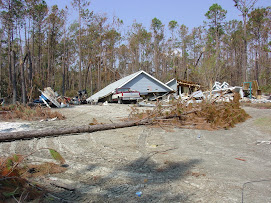We note with some disappointment that Cowboy's efforts to enlist the help of another insurance law blogger with a case document went unanswered but in this day and age of the internet even non legal lay people can come by case documents. Such is the case in Fojas v. Ackerman et al and Allstate Corporation, a shareholder derivative lawsuit filed January 18, 2008. This news broke on the Allstate Message Board at Yahoo Finance where the authors of this blog have become board regulars telling our story of insurance bad faith and was confirmed yesterday evening by Forrestgrump55i, an ally in this battle between ordinary citizens and the insurance giants.
The suit contains a well written account of the institutionalization of claimant abuse as part of the big insurance business model:
In 1992, Allstate hired McKinsey & Co. (“McKinsey”), a global management consulting company which assists corporate executives in identifying ways to improve the performance of the company, to “redesign” Allstate’s claims handling procedures. The “new” claims handling procedure was implemented by Allstate in 1995. According to the McKinsey reports, the claims handling procedure would increase Allstate’s stock price and add $700 million to Allstate’s revenue.
The engagement of McKinsey lasted approximately five years, during which time McKinsey constantly updated Allstate management in reports and power-point presentations (“McKinsey reports”). Certain of the McKinsey reports came to light in Geneva Hager v. Allstate Ins. Co., 98-cl-2482, Fayette Circuit Court Kentucky, a civil action filed by an Allstate policyholder against the Company alleging bad faith claims handling. During the trial in October, 2007, the plaintiff’s lawyer outlined how the McKinsey reports essentially detail a course of action designed to avoid paying claims, and when claims were paid - - pay less.
According to a July 9, 2006 article in the Lexington Herald-Leader, the McKinsey reports were obtained by lawyers in several additional civil cases, but were all subject to protective orders, until a bad faith claim was asserted in New Mexico (“New Mexico litigation”). In the New Mexico litigation, the plaintiff’s attorney refused to consent to a protective order. Allstate argued that the McKinsey reports were trade secrets, and appealed the trial court’s findings that they did not constitute trade secrets. Following the unsuccessful appeal on that order two years later, Allstate refused to turn over the McKinsey reports, leading to the entry of a default judgment against Allstate, which again Allstate appealed.
In the Hager litigation, the judge ruled in 2001 that the McKinsey reports were not trade secrets; in order to avoid the inevitable appeal, however, the parties agreed to treat the documents confidential to keep the litigation proceeding. Eventually, certain pages of the McKinsey report were made public during the October 2007 trial, but the majority remains confidential.
Allstate continues to attempt to maintain the confidentiality of the McKinsey reports, no matter what effect it has on the Company, its reputation or its finances.
In a September 12, 2007 order entered in an action styled Dale Deer v. Allstate Ins. Co., Case No. 0516-CV24031, Circuit Court of Jackson County, Missouri, Allstate failed to respond to an Order to Show Cause issued to address, in part, Allstate’s prior violations of two court orders requiring responses to discovery, and was found in civil contempt of court. The court ordered Allstate to pay $25,000 per day beginning September 14, 2007 until the discovery sought was produced. Allstate instead appealed, and the appeal is pending. If penalties accrue to date, Allstate would be faced with sanctions of approximately $3 million at this juncture.
This suit represents an important new front in this battle of profits and corporate greed over people. Settling claims should not be a game of low ball and hard ball; rather claims should be adjusted fairly to the proper amount.
sop

No comments:
Post a Comment